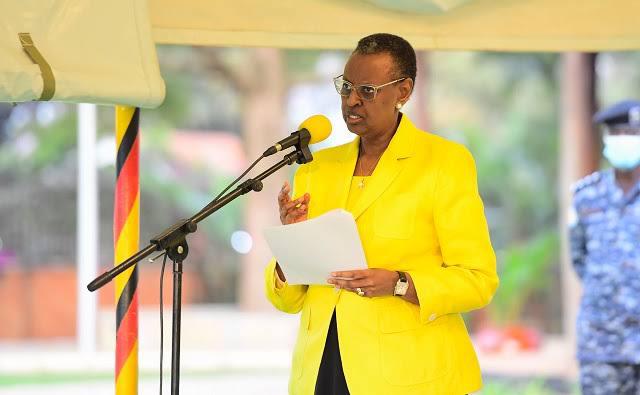The Minister of Education and Sports, Ms. Janet Kataaha Museveni, has issued a stern warning to private school proprietors in Uganda, urging them to stop recruiting government-employed teachers, citing the negative effects on the quality of education.
Speaking at a dialogue with private school owners at Green Hill Academy in Kibuli, Kampala, on December 3, Ms Janet Museveni addressed a growing concern within the education sector: the detrimental impact of teachers moonlighting in both private and government schools. She argued that when teachers, who are on the public payroll, take part-time positions in private institutions, their performance suffers across both sectors.
“I would like to ask you to ensure you do not employ teachers who are already on the payroll in the public sector,” she said firmly. “Those teachers in government schools shouldn’t be employed in private schools because they do a bad job in both places.”
This issue, Ms. Museveni explained, undermines the quality of teaching in both public and private settings, and disrupts the educational system’s ability to deliver quality learning. She urged the proprietors to hold themselves accountable, prioritizing service delivery in their schools and emphasized that when everyone respects their role and commitment, the entire education sector would flourish.
“When you know that we are here to provide a service to our communities, then you must be strict about providing the service you offer. If we cooperate, everybody will do a good job where they are employed to serve, instead of running a zigzag and doing a bad job in all schools,” she added.
This warning comes on the heels of a circular issued by the Ministry of Education’s Permanent Secretary, Dr Kedrace Turyagyenda, on October 31, which revealed a troubling trend of government teachers absconding from their duties while continuing to receive their salaries. According to Dr. Turyagyenda’s letter, many of these teachers have been operating private schools or moonlighting in better-paying private institutions, leading to a shortage of qualified staff in public schools.
With a total of 12,433 Universal Primary Education (UPE) schools in Uganda and 177,936 teachers in public primary schools as of March 2024—exceeding the required teacher numbers by 8%—Ms. Museveni acknowledged the challenge but emphasized the need for stronger management. She attributed the problem to the laxity of headteachers and school management committees, which have failed to curb the practice of teachers working in both sectors.
“The difference in performance comes down to the vigilance of headteachers and proprietors in private schools. Public schools ought to emulate this because there is no reason why staff who are paid regularly and have job security should not be at their duty station,” she said.
The minister also called for an improvement in the working conditions of teachers, particularly those in private schools, stressing that fair treatment and well-structured contracts are essential for boosting employee morale and enhancing educational standards.
“Ensure proper treatment of your employees, give them formal contracts, stick to the terms of the contracts, and allow them to leave so that they can rest,” Ms Museveni advised.
However, Mr Hasadu Kirabira, the chairperson of the National Private Education Institutions Association (NPEIA), responded to the claims, asserting that private schools are not luring teachers from government institutions. “As private schools, we cannot agree that we are fetching teachers from government schools. The teachers in private schools are private teachers,” he stated. “If teachers are moonlighting, it is the government that should align itself.”
He also pointed out that the shortage of science teachers in both the public and private sectors requires a more collaborative approach to address the issue. “What government should ensure is that teachers fulfil their duties in both sectors,” Mr Kirabira said.
Ms. Museveni’s remarks also touched on the importance of aligning the curricula and instructional materials of international schools with the guidelines set by the National Curriculum Development Centre (NCDC). The issue has become increasingly important as private institutions gain popularity among parents seeking alternative education options.
During the dialogue, private school owners submitted a comprehensive list of demands to the Education minister, highlighting areas for improvement and collaboration. Dr. Fred Muhumuza, a senior economist, presented the list on behalf of the owners, underscoring the need for a more balanced approach to teacher management, compensation, and educational standards across both private and public sectors.
As the education sector continues to evolve, the call for greater accountability, improved working conditions for teachers, and better cooperation between public and private institutions remains at the forefront of Uganda’s efforts to deliver quality education to all students.


